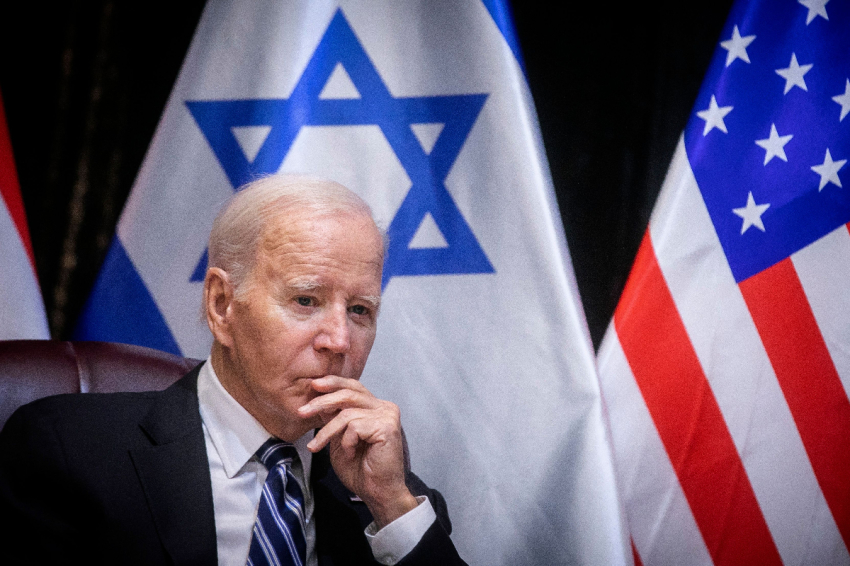Biden vows to veto $14.3B Israel aid package that doesn't include funding for Ukraine

President Joe Biden has vowed to veto a plan to provide $14.3 billion in aid to Israel that does not include funding for Ukraine, while Senate Majority Leader Chuck Schumer says the package will meet a dead end in the upper chamber.
On Thursday, the Republican-controlled U.S. House of Representatives passed a measure to provide emergency aid to Israel along with billions in cuts to the Internal Revenue Service. The measure passed with a 226-196 vote, with 214 Republicans voting in favor of the bill, while two joined 194 Democrats in objecting.
The legislation is a response to the Oct. 7 attack by the terrorist group Hamas that claimed the lives of 1,400 people, a majority of them civilians. Following the incursion, Israel commenced a ground invasion of Gaza late last month to eradicate Hamas and secure the release of the more than 200 individuals taken hostage by the terrorist group.
The Hamas-run health authorities say over 8,000 people have been killed since Israel began retaliatory airstrikes early last month.
As Reuters reported, Biden had asked Congress to pass a $106 billion spending package that, in addition to aid for Israel, included funding for Taiwan, Ukraine and humanitarian assistance.
Due to disagreements about the bill, it may be weeks before Congress agrees to a spending plan, according to Reuters.
The House bill, as it currently stands, would provide the Israeli military with billions of dollars of aid, including $4 billion for procurement of the Iron Dome and David's Sling defense systems, to remain available until Sept. 30, 2026.
In a Thursday statement shared on X, Schumer vowed that the Senate would not consider what he referred to as the House Republicans' "deeply flawed proposal."
"Instead we will work on our own bipartisan emergency aid package that includes funding for aid to Israel, Ukraine, humanitarian aid including for Gaza, and competition with the Chinese Government," the Democratic leader wrote.
National Security Spokesperson John Kirby said Thursday that Biden would veto a bill that only included funding for Israel and not additional aid. The White House has indicated that both Israel and Ukraine are priorities for the president.
In a Tuesday statement, the Biden administration declared its opposition to the measure, and it promised that the president would veto the bill if it made it to his desk. The administration promised that it would continue to engage with Congress in a "bipartisan manner" to reach an agreement.
"But rather than putting forward a package that strengthens American national security in a bipartisan way, the bill fails to meet the urgency of the moment by deepening our divides and severely eroding historic bipartisan support for Israel's security," the administration stated about the Republican-proposed measure.
"It inserts partisanship into support for Israel, making our ally a pawn in our politics, at a moment we must stand together," the statement continued. "It denies humanitarian assistance to vulnerable populations around the world, including Palestinian civilians, which is a moral and strategic imperative."
The administration also argued that the measure is "bad" for Israel and the Middle East region, as well as the United States' national security, claiming that it prioritizes one ally over all of the others.
Last month, the White House requested supplemental funding from Congress to provide for Israel's security needs and supply Ukraine with the necessary training and equipment to fend off Russia's invasion. In addition, the White House called for more funding to secure the southwest border and prevent fentanyl from entering the United States.
The statement also outlined a plan for addressing the humanitarian needs of civilians impacted by the war in Israel and Ukraine, including food security and "life-saving humanitarian assistance."
"Our humanitarian assistance is critical to demonstrating U.S. leadership amid unprecedented levels of humanitarian need, geopolitical competition, and global challenges," the statement read.
Samantha Kamman is a reporter for The Christian Post. She can be reached at: samantha.kamman@christianpost.com. Follow her on Twitter: @Samantha_Kamman



























